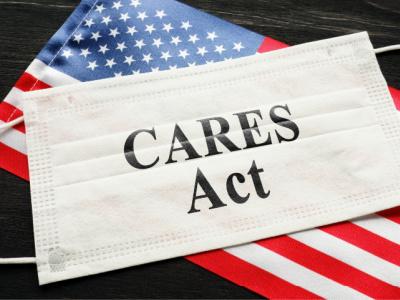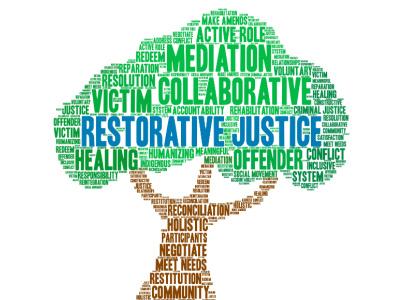Recent Blog Posts
Will Drunk Driving Detection Technology Be Required in Vehicles?
 Drunk and intoxicated driving is an ongoing concern in the United States. Public safety campaigns have alerted people to the dangers of drunk driving, and those who are arrested and charged with driving under the influence (DUI) may face serious penalties that can include large fines, loss of a driver’s license, and time in jail. Despite these measures, many people choose to drive while intoxicated, putting themselves and others at risk. In 2021, more than 13,000 people were killed in accidents involving alcohol impairment.
Drunk and intoxicated driving is an ongoing concern in the United States. Public safety campaigns have alerted people to the dangers of drunk driving, and those who are arrested and charged with driving under the influence (DUI) may face serious penalties that can include large fines, loss of a driver’s license, and time in jail. Despite these measures, many people choose to drive while intoxicated, putting themselves and others at risk. In 2021, more than 13,000 people were killed in accidents involving alcohol impairment.
To address concerns about drunk driving and other dangerous behaviors, the United States government is looking to put rules in place that may require vehicle manufacturers to include technology that will detect intoxication. However, many questions remain about what types of technology may be used, how it will be implemented, and whether it will actually provide the intended benefits.
When Can a Person Be Charged With Felony Murder?
 Most people understand that if they intentionally kill someone else or engage in behavior that leads to someone’s death, they may be charged with murder. However, many people do not realize that murder charges may also apply in other situations. When a person is accused of committing a felony offense that directly or indirectly led to someone else’s death, they may still face charges of murder. This is known as felony murder, and it has led to situations where people are sentenced to life in prison even when they were not at the scene where a person was killed or were not directly involved in a victim’s death.
Most people understand that if they intentionally kill someone else or engage in behavior that leads to someone’s death, they may be charged with murder. However, many people do not realize that murder charges may also apply in other situations. When a person is accused of committing a felony offense that directly or indirectly led to someone else’s death, they may still face charges of murder. This is known as felony murder, and it has led to situations where people are sentenced to life in prison even when they were not at the scene where a person was killed or were not directly involved in a victim’s death.
While legal representation is important for anyone who is facing criminal charges, it is especially crucial in situations involving murder or other violent crimes. An attorney with experience defending clients charged with violent crimes can make sure a defendant’s rights are protected, and they can help determine the best defense strategies to use during a case.
New Connecticut Traffic Stop Policies May Reduce Racial Profiling
 Racial disparities are an ongoing issue in the criminal justice system. Black people and other minorities are more likely to be arrested than white people, they are more likely to be convicted of crimes, and they often receive longer sentences and harsher penalties. As part of its ongoing efforts to combat these issues, the state of Connecticut is considering implementing some reforms. It has also made some progress in correcting the racial disparities that occur in traffic stops, which may lead to arrests and criminal convictions.
Racial disparities are an ongoing issue in the criminal justice system. Black people and other minorities are more likely to be arrested than white people, they are more likely to be convicted of crimes, and they often receive longer sentences and harsher penalties. As part of its ongoing efforts to combat these issues, the state of Connecticut is considering implementing some reforms. It has also made some progress in correcting the racial disparities that occur in traffic stops, which may lead to arrests and criminal convictions.
While reforms may be put in place, there are many people who continue to be affected by police misconduct and unfair treatment by law enforcement officials. If you have been arrested following a traffic stop or in another type of situation, a skilled attorney can provide representation to help you defend against the charges you are facing.
Promising Trends in Connecticut Traffic Stops
The Connecticut Racial Profiling Prohibition Project tracks data about traffic stops throughout the state, seeking to identify issues that may disproportionately affect minorities and lead to injustices. In its preliminary analysis of data from 2022, it found that, for the first time, there were no indications of racial disparities in the people who were stopped by police officers for traffic violations.
Connecticut’s Clean Slate Law Will Go Into Effect in January 2024
 People who are convicted of criminal offenses often face difficulties in their lives, even years after completing their sentences. The collateral consequences of a criminal conviction can include problems finding employment, pursuing educational opportunities, and obtaining housing. To address this issue, the state of Connecticut has passed a "clean slate" law that is meant to help people move forward from the mistakes of the past by clearing their criminal records. While there have been issues that have prevented this law from going into effect, Governor Ned Lamont recently announced that the people will be able to benefit from its provisions starting in January of 2024.
People who are convicted of criminal offenses often face difficulties in their lives, even years after completing their sentences. The collateral consequences of a criminal conviction can include problems finding employment, pursuing educational opportunities, and obtaining housing. To address this issue, the state of Connecticut has passed a "clean slate" law that is meant to help people move forward from the mistakes of the past by clearing their criminal records. While there have been issues that have prevented this law from going into effect, Governor Ned Lamont recently announced that the people will be able to benefit from its provisions starting in January of 2024.
If you are concerned about how you may be affected by a criminal record, or if you need to make sure you will be able to benefit from Connecticut’s clean slate law, an experienced attorney can help you address these issues. At Woolf & Ross Law Firm, LLC, we can work with you to ensure that you receive the fresh start you deserve.
Have Body Cameras Reduced Police Misconduct?
 Excessive force, discrimination, and other forms of misconduct by police officers are growing concerns in the United States. Many police departments have little oversight, and even in situations where officers kill civilians without justification, they rarely face discipline. Over the past decade, concerns about police violence have led to calls for more oversight, and laws have been passed that have required police officers to wear body cameras
Excessive force, discrimination, and other forms of misconduct by police officers are growing concerns in the United States. Many police departments have little oversight, and even in situations where officers kill civilians without justification, they rarely face discipline. Over the past decade, concerns about police violence have led to calls for more oversight, and laws have been passed that have required police officers to wear body cameras
The use of these cameras is meant to ensure that instances of misconduct can be identified and that the appropriate actions can be taken in response. However, the ways in which body camera programs have been implemented have often failed to address concerns about misconduct. Because the actions of police officers can affect criminal cases, and excessive force by officers can lead to people being seriously injured or wrongfully killed, ongoing reform is needed. An experienced attorney can help people who have been affected by police violence during arrests understand their options for defending against criminal charges, including obtaining body camera footage and other evidence.
Congress May Attempt to Reincarcerate Prisoners Released on Home Confinement During COVID-19
 During the COVID-19 pandemic, the prison system in the United States faced a crisis. Many prisoners were placed at risk due to crowded conditions and a lack of proper medical care. To address this issue, the Coronavirus Aid, Relief, and Economic Security (CARES) Act passed by Congress allowed the federal Bureau of Prisons (BOP) to release low-risk prisoners on home confinement. A large number of prisoners were able to take advantage of this program. However, a new resolution has been proposed in Congress that would end the program and potentially even reincarcerate prisoners who have been able to achieve success during periods of home confinement
During the COVID-19 pandemic, the prison system in the United States faced a crisis. Many prisoners were placed at risk due to crowded conditions and a lack of proper medical care. To address this issue, the Coronavirus Aid, Relief, and Economic Security (CARES) Act passed by Congress allowed the federal Bureau of Prisons (BOP) to release low-risk prisoners on home confinement. A large number of prisoners were able to take advantage of this program. However, a new resolution has been proposed in Congress that would end the program and potentially even reincarcerate prisoners who have been able to achieve success during periods of home confinement
People who are involved in the criminal justice system often face a number of obstacles, and they may be wrongfully convicted or receive excessive sentences. An attorney who has experience in criminal defense cases at the state and federal level can help defend against convictions. They can also provide guidance on the relief programs that may be available, such as home confinement, while also taking steps to protect the rights of prisoners and help them avoid reincarceration.
Is Restorative Justice an Option for People Convicted of Crimes?
 In recent years, there has been a growing interest in alternative approaches to criminal justice. One such approach is restorative justice, which focuses on repairing the harm caused by crimes through dialogue, negotiation, and reconciliation between victims, offenders, and the community. While traditional punitive measures aim to punish offenders and deter future crimes, restorative justice seeks to address the underlying issues that lead people to commit criminal offenses.
In recent years, there has been a growing interest in alternative approaches to criminal justice. One such approach is restorative justice, which focuses on repairing the harm caused by crimes through dialogue, negotiation, and reconciliation between victims, offenders, and the community. While traditional punitive measures aim to punish offenders and deter future crimes, restorative justice seeks to address the underlying issues that lead people to commit criminal offenses.
Restorative justice may help address the ongoing crisis of mass incarceration in the United States. While many criminal cases focus on punishing alleged offenders, this has resulted in lengthy prison sentences for many people, as well as difficulties for inmates who struggle to reintegrate into their communities after serving their sentences and being released from prison. An attorney who provides representation for criminal defendants and convicts can provide guidance on the options for restorative justice and the steps that can be taken to ensure that prisoners’ rights are protected.
Retroactive Sex Offender Registration Affects Connecticut Convicts
 While all criminal charges are serious, there are some offenses that are prosecuted harshly, and they can result in consequences that will affect a person for the rest of their life. Sex crimes are taken especially seriously by the criminal justice system. A conviction for sexual assault or other related crimes in Connecticut will typically require a person to register as a sex offender for either 10 years or life. People who are accused of sex crimes can work with an attorney to determine their options for defending against a conviction and avoiding the stigma of being a registered sex offender.
While all criminal charges are serious, there are some offenses that are prosecuted harshly, and they can result in consequences that will affect a person for the rest of their life. Sex crimes are taken especially seriously by the criminal justice system. A conviction for sexual assault or other related crimes in Connecticut will typically require a person to register as a sex offender for either 10 years or life. People who are accused of sex crimes can work with an attorney to determine their options for defending against a conviction and avoiding the stigma of being a registered sex offender.
Sex offender registration can limit the opportunities available to a person, including the types of jobs they may be able to secure and the places where they can live. Their name, picture, and identifying information will be publicly available, affecting their reputation in the community and their relationships with friends and family. This can cause a great deal of difficulty for a person. Unfortunately, some people who had been convicted of sex offenses before the registry was put in place were retroactively added to the registry, and they are continuing to struggle with the effects of sex offender registration.
Changes to Sentencing Guidelines May Allow for Sentence Reductions

The United States has a problem with mass incarceration. Defendants who are charged with crimes will often face lengthy prison sentences, even for low-level, non-violent offenses. In many cases, these sentences do not have the desired effect of rehabilitating prisoners and ensuring that they will be able to successfully re-enter society after serving time in prison. Families will often struggle due to the loss of financial support from a person who is incarcerated. After being released, the collateral consequences of a criminal conviction may limit a person’s opportunities, leading them to engage in illegal activities that could result in additional criminal charges and longer periods of incarceration following a subsequent conviction.
Because of these concerns, government officials are looking to implement new policies that are meant to reduce sentences for some prisoners and ensure that they can be rehabilitated and reintegrate into society after being released. Recently, some changes have been made to the guidelines for sentencing in federal criminal cases, and some prisoners may be able to have their sentences reduced. To understand how these guidelines may apply for people who have been convicted of different types of crimes, prisoners can work with an experienced attorney who can help them take the proper steps to reduce their sentences.
How Social Media Use Can Lead to Violence and Criminal Charges

Social media has provided people with many benefits, including the ability to connect with others who have similar interests and share information about their lives with their friends and family members. However, the increased use of social media has also raised many concerns about issues ranging from privacy to addiction and other unhealthy behaviors. One increasingly prevalent issue for young people who use social media involves the risks of violence, which may occur when fights, bullying, and other related issues are amplified after being shared online.
Advocates for public safety and people who work with teens and others to prevent violence have raised concerns about the use of social media. Teens who commit acts of violence after being involved in online arguments or gang-related activity may face criminal charges that could affect them for the rest of their lives. In these situations, it is important to work with an attorney who can provide legal representation in criminal cases while also helping juvenile offenders participate in diversion programs that will help them avoid illegal activities while protecting their futures.






